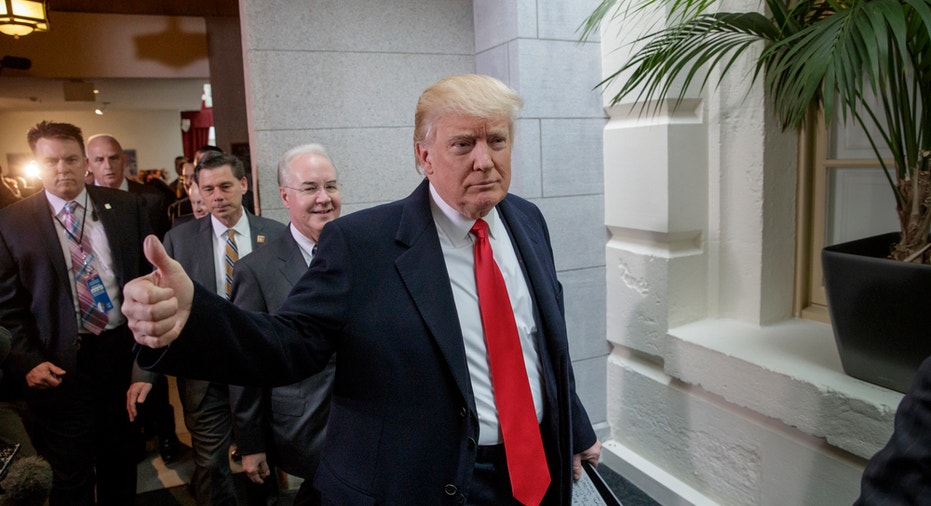Insurers seek health care policy clarity as critical deadlines loom

Insurers face two critical deadlines in September, by which time it appears increasingly unlikely they will have clarity on a number of key issues, including whether the federal government will continue funding key ObamaCare subsidies.
“Unless Congress acts by September 27—when insurance companies must sign contracts with the federal government to sell insurance on the federal exchange in 2018— 9 million Americans in the individual market who receive no government help purchasing health insurance and whose premiums have already skyrocketed may see their premiums go up even more,” Senate Health Committee chair Sen. Lamar Alexander (R-Tenn) said in a statement on Monday.
Alexander said lawmakers will begin hearings in September on stabilizing the insurance marketplace. He has also asked President Donald Trump to continue funding cost-sharing reduction subsidies, or reimbursements for discounted care provided to low-income individuals, until lawmakers develop a working solution to remedy rising health care costs. The White House has been making payment decisions on a month-to-month basis, while insurance companies have sought a more solid commitment, particularly after the president proposed letting ObamaCare “implode” by eliminating the subsidies altogether.
Meanwhile, insurance companies have been searching for ways to deal with the CSR payment quandary. One of the nation’s largest insurers, Anthem (NYSE:ANTM), warned late last month that without certainty regarding these payments, it could be forced to narrow its participation on the exchanges even further. In the weeks since Anthem issued that warning, it announced its withdrawal from the ObamaCare marketplace in Nevada and a dramatic reduction of participation in Georgia.
Aetna (NYSE:AET) and Humana (NYSE:HUM) announced earlier this year they would not offer plans on the individual marketplace for 2018, citing marketplace volatility and the damaging costs of participation.
For the companies choosing to remain, hiking premiums is one of the popular ways to mediate policy uncertainty. Molina Healthcare (NYSE:MOH) announced earlier this month it would seek a 55% premium increase in the marketplaces where it would remain next year. That number would drop to 30% if cost-sharing reduction subsidies were definitively funded, the company said. Meanwhile, PacificSource Health Plans in Idaho has requested a 45.6% rate increase. In California, monthly health premiums are set to rise by an average of 12.5%, state officials said earlier this month.
Insurers have to submit final premium proposals for 2018 by September 5, the first day of the Senate Health Committee’s hearings. Unless the government makes a decision on CSR payments by then, insurers will be flying blind on how to price plans accurately. They have asked the federal government for $8 billion in payments to fund discounted consumer care over the coming year.
September 27 is the final deadline for insurers to sign contracts for next year’s health care plans.



















